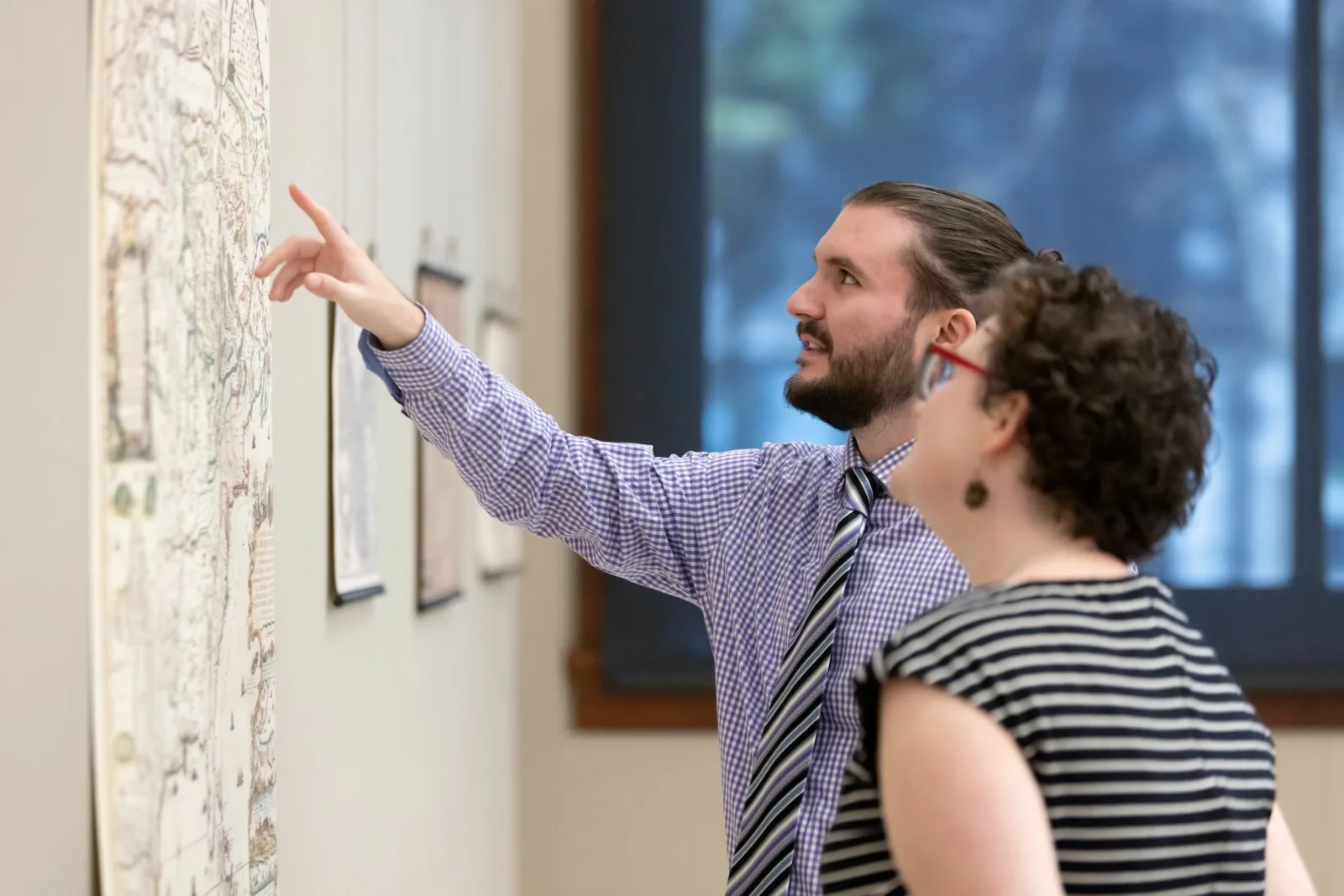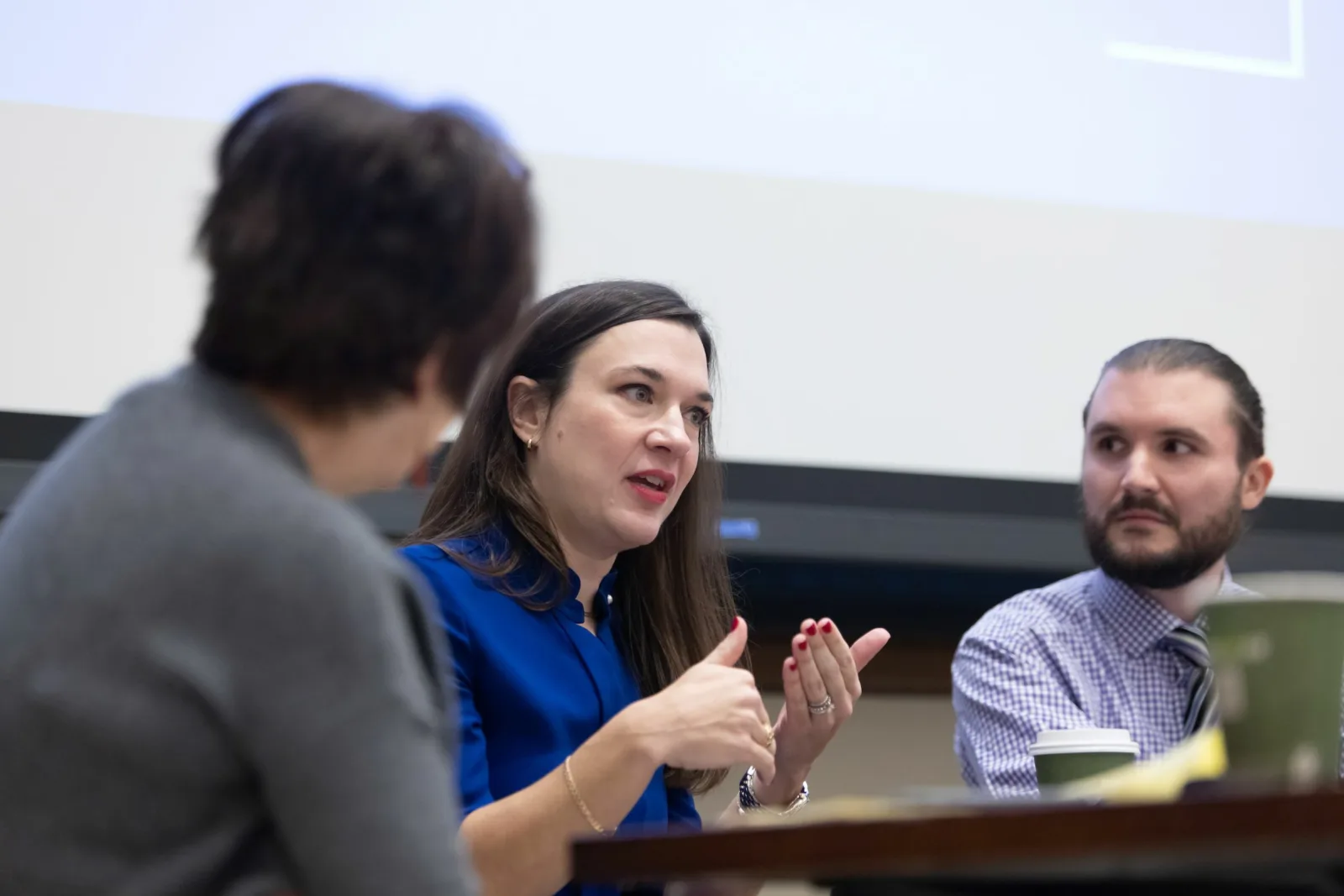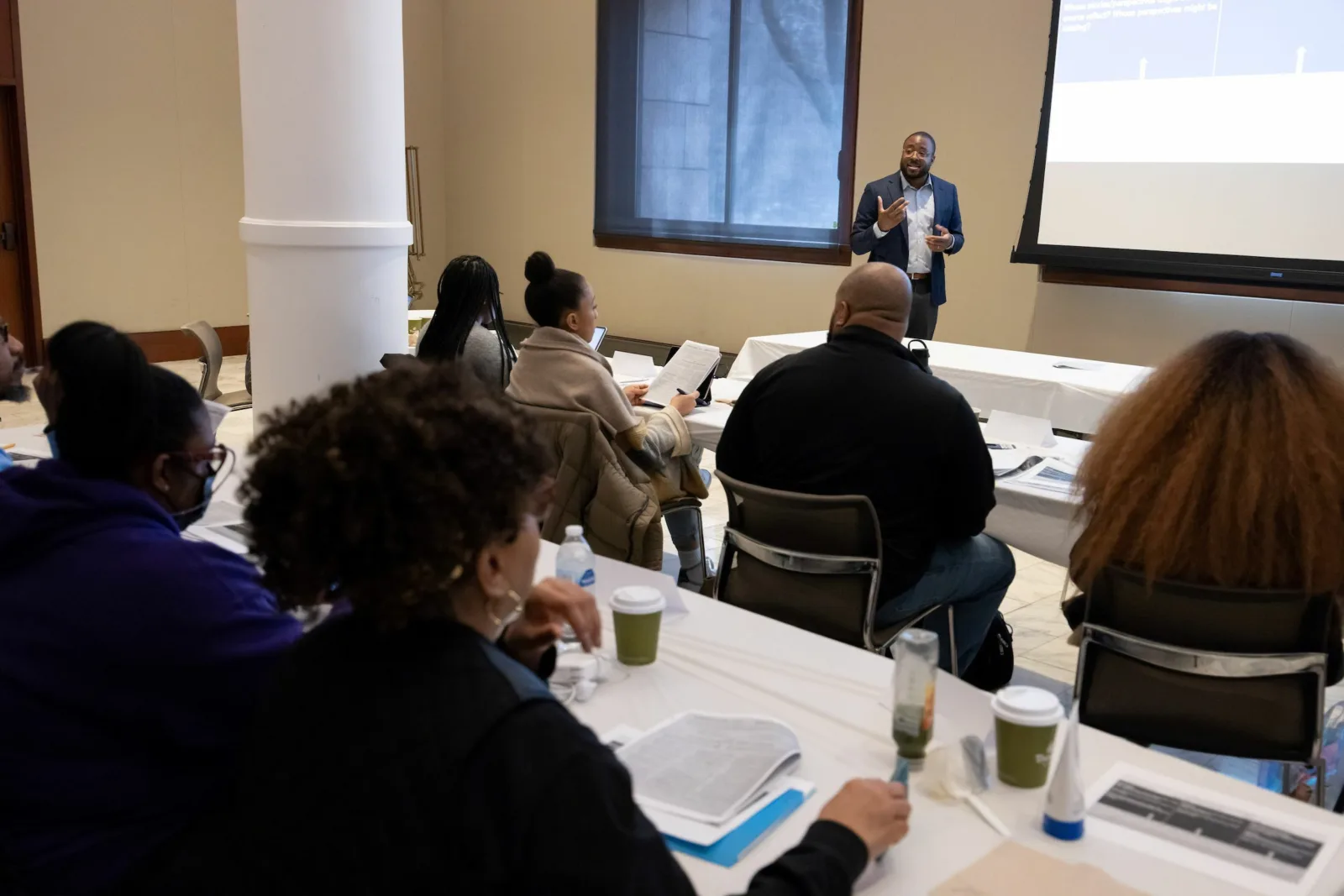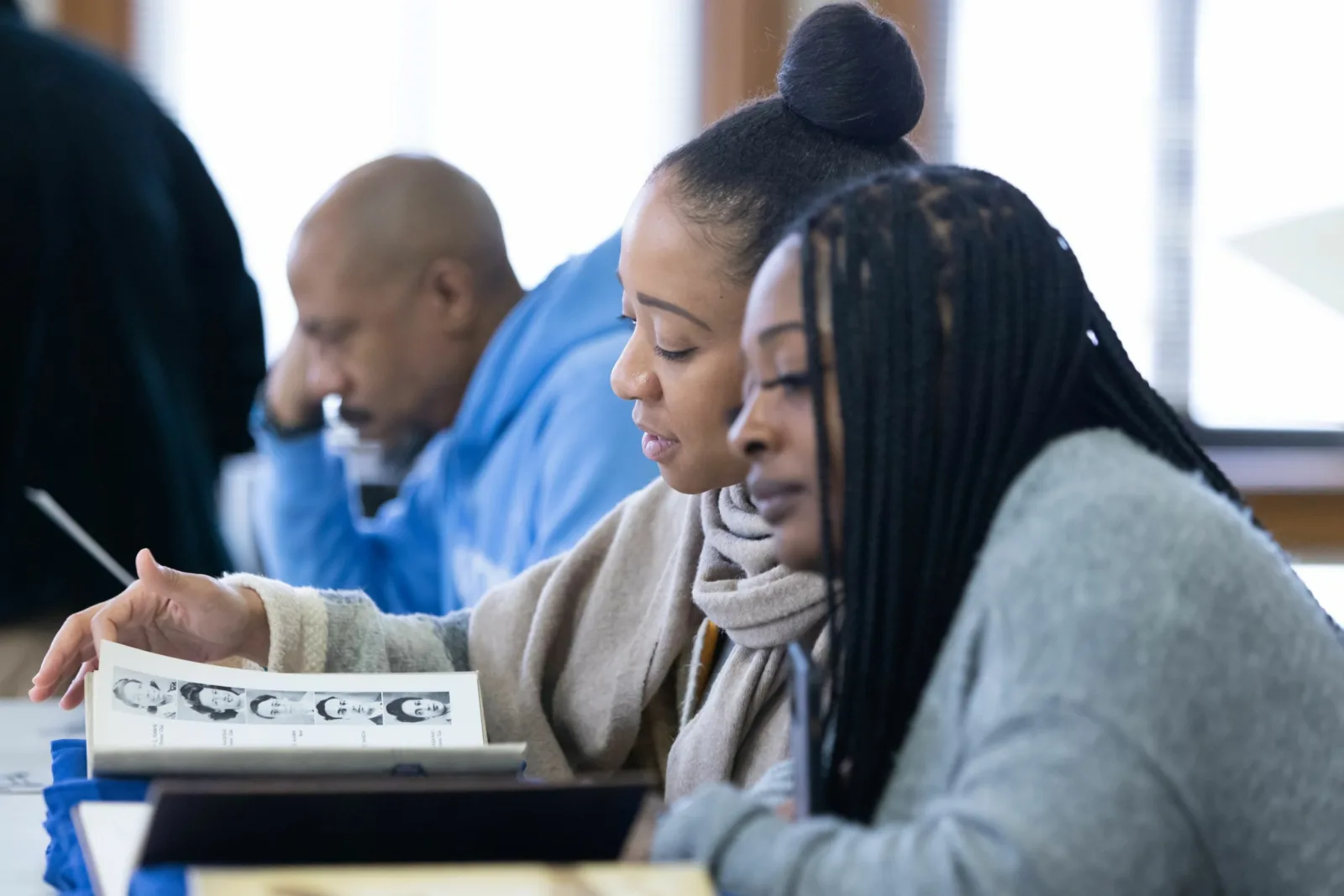For over 30 years, the Newberry’s Teacher Programs department has put the library’s vast collections to work in order to empower teachers and students alike. The department oversees three main categories of programming: professional development for educators, digital education resources, and, when the opportunity arises, class visits and other student programming. Kara Johnson has been Director of Teacher Programs for two years; she feels that the department’s mission is to “make the Newberry’s digital and physical materials accessible and teachable for anybody who would like the explore the collections.”
At the core of the Newberry’s Teacher Programs are the nearly 40 professional development seminars that the department hosts each academic year. The seminars are taught by subject specialists such as local university faculty and Newberry staff; teachers gain expertise in a particular humanities topic, usually drawing on the Newberry’s collections. The relationship between the Newberry and participating teachers is symbiotic and often extends beyond the seminar itself. As teachers gather at the library, they visit exhibitions, attend collection presentations, shop at the bookstore, and engage directly with our resources. Newberry staff, too, gain firsthand feedback about the specific challenges of classroom teaching today, and how the Newberry could further develop their programs in order to speak to as many of those needs as possible.

“A lot of the teachers we work with are not always trained in the discipline that they teach,” says Johnson, “so a teacher who may be certified in one thing is often tasked with teaching social studies when they don't really have that training. That's when they turn to us and really get the support and ideas they need so they feel more confident teaching a subject in their classrooms.” Over the past year, nearly 600 teachers benefited from a Newberry Professional Development Seminar.
The seminars that the department offers intentionally cover a very wide range of subjects and disciplines. Just this past fall, teachers could learn about the development of rap music in Local Rap Music in the US: The Cases of the Bronx, Los Angeles, Chicago, and Atlanta, or how maps illustrate not only literal representations of the world around us, but also how their makers uniquely interpret that world, in Maps, Art, and Everything in Between. The latter class, taught by David Weimer, the Newberry’s own Director of the Smith Center for the History of Cartography and Robert A. Holland Curator of Maps, offered a hands-on and creative approach to the subject that let learners create maps through collaging. Since mapmaking is by its nature a physical and creative process, by practicing an interpretative and tactile approach to learning about maps, the teachers could then model this “learning by doing” methodology in their own classrooms.
Recognizing that not all teachers are able to attend a Newberry program in person, the Newberry offers plentiful digital education resources, including lesson plans, activities, and primers on skill development. This includes the Digital Collections for the Classroom, the teacher-facing version of the Newberry’s larger digital collection. Since their launch more than a decade ago, the DCCs remain the Newberry’s most popular digital resource, used by nearly 80,000 educators in the last year. They consistently serve as a powerful tool for teachers tasked with introducing students to work with primary sources, and can teach critical skills like how to transcribe a manuscript or interpret a map.

The department has a great deal to be proud of, but Johnson makes special mention of the Newberry’s programs for Chicago Public School teachers. “Instructors at CPS always face a myriad of unique and specific challenges because it's such a large and diverse system, in terms of the school and student geography, socioeconomics, learning abilities, everything,” says Johnson. “We’ve found ways to make it more accessible for instructors, in part by offering participation at no charge, thanks to support from the Robert and Penelope Steiner Family Foundation. It helps the largest number of teachers participate, and removes nearly every material and logistical barrier to that continuing education.”
This coming spring, the department plans to offer a teacher wellness seminar on burnout, an issue that feels particularly important right now. “That’s a new move for us,” says Johnson. “Historically, we have been solely content-based, in part because we weren't able to quite see the full picture of what teachers were dealing with, especially since the pandemic. I think that teachers are trying to find the right tools and coping mechanisms for their own well-being so that they are able to support their students in the best ways possible.”
Programs like these would never be possible if not for the relationships the department has built with the teachers they serve. “I think what makes us stand apart from other kinds of professional development programs is that we see the teachers as collaborators,” says Johnson. “The teachers help the Newberry to improve materials and educator resources and make sure they are as usable and useful as possible. This unique framework that the Newberry was able to build over the past few years really shows the possibilities of what a successful K-12 program can look like at a research library.”
Teacher Programs at the Newberry are supported by the Annual Fund, among other funding sources; the Newberry is especially grateful to our community of supporters for helping us make Teacher Programs radically accessible.

This story is part of the Newberry’s Donor Digest, Holiday 2024. In this newsletter, we share with donors exciting stories of the work made possible by their generosity. Learn more about supporting the library and its programs.
